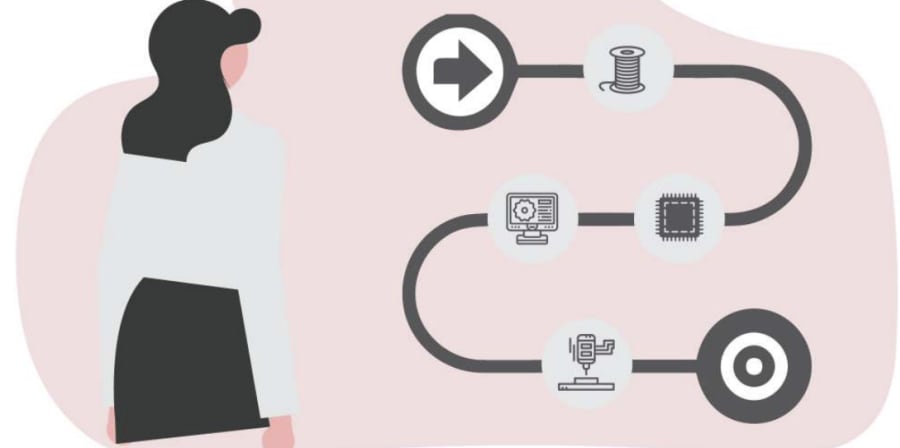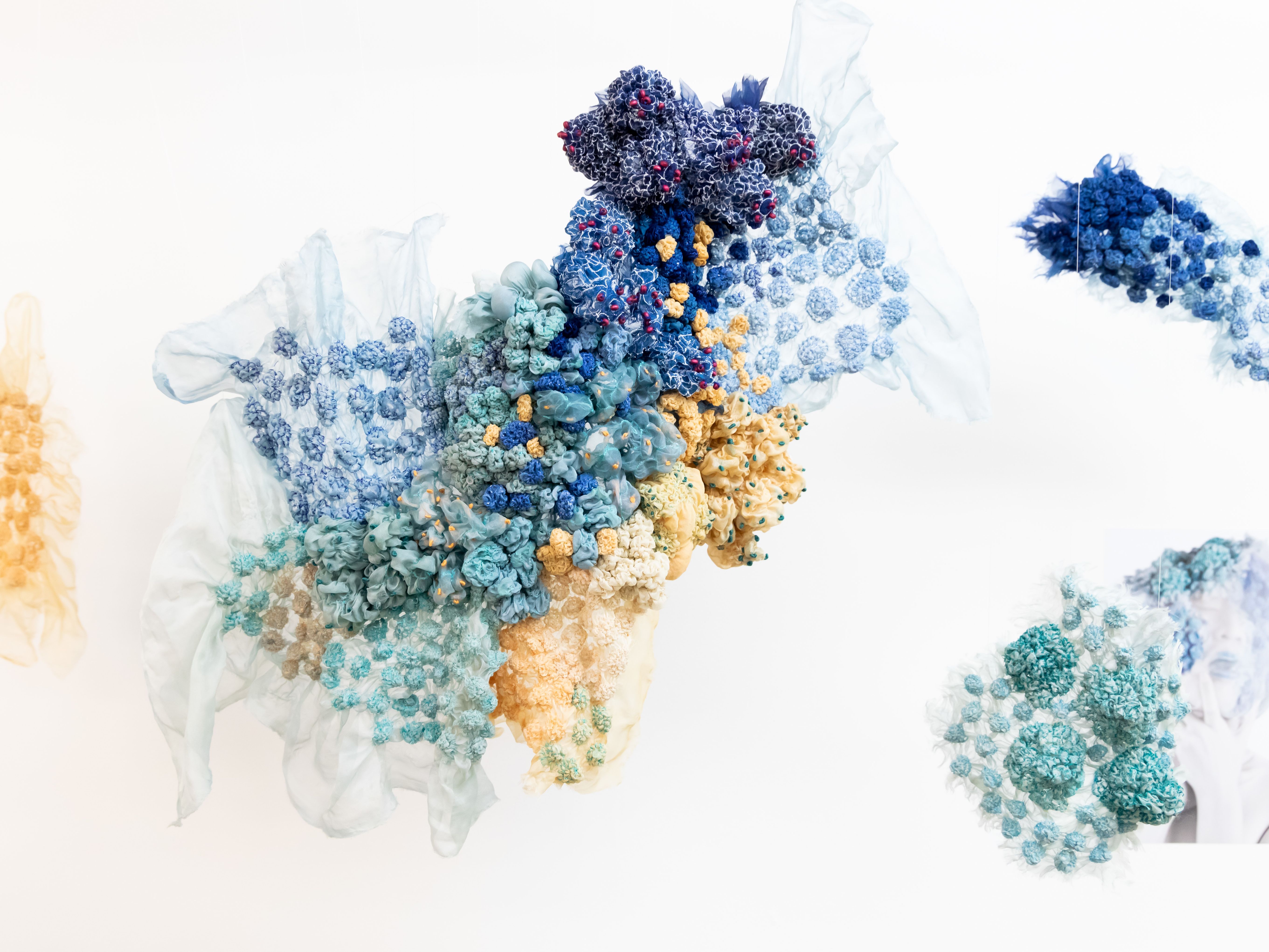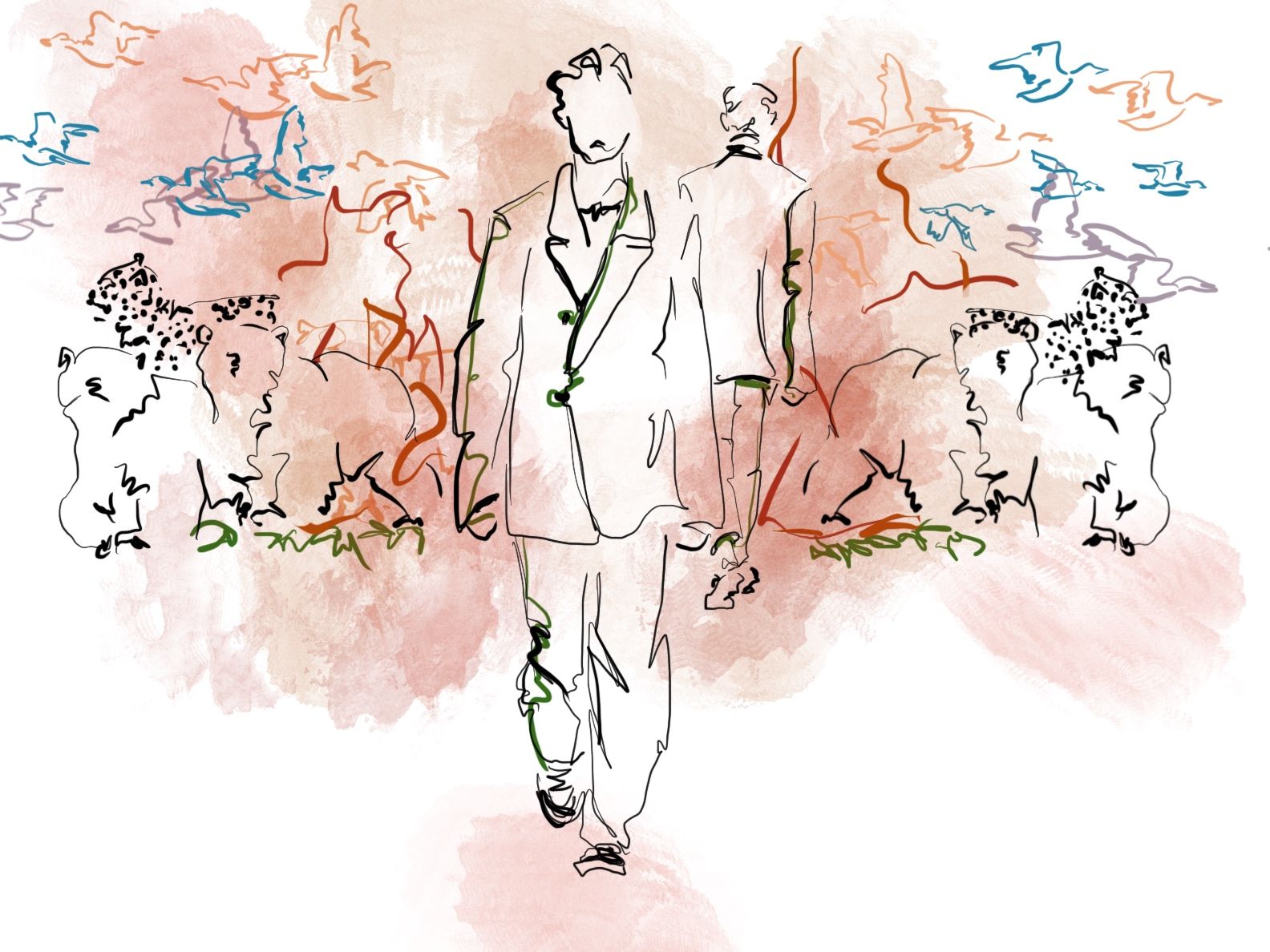Academics and representatives from the fashion industry have joined forces to determine which roles will become the most in-demand in the fashion-technology sector.
The report, produced by London College of Fashion, UAL, follows a collaborative effort between the 12 European partners involved in FTAlliance, an Erasmus+ Knowledge Alliance formed to define the future career pathways in fashion-tech. The results derive from extensive research into the current landscape of the fashion industry, combined with a series of knowledge exchange activities looking at how the integration of emerging technologies will bring new business models with improved sustainability and circularity.
Providing a window into the specific skills and knowledge which will be sought after by fashion brands and retailers in the coming years, the report also includes guidelines for employers and recruitment professionals to prepare for the 8 most crucial roles emerging in fashion-tech:
- Innovation Manager
- UX Designer
- Digital Experience Manager
- Sustainability Lead
- Digital Product Manager
- Data Scientist
- Lobbyist
- Microfactory Manager
Download the full report for more information on each role.

Empowering future talent to build a more sustainable and efficient fashion industry
According to the LCF team leading on the report, defining these new roles will help higher education institutions to boos students' employability, equipping them with the necessary knowledge and skills to enter the fashion workforce.
“This partnership has given us the opportunity to have direct and in-depth conversations with industry leaders across the sector, from SMEs and start-ups to large companies, to find out how they see the future of fashion-tech and get their thoughts on the digital skills required for new positions and how they fit in their business models," says Professor Jose Teunissen, Dean of School of Design and Technology at LCF and UAL’s key investigator for FTAlliance.
"This process has also enabled us to better understand what is required from our graduates. We'll be using the takeaways from this report to update the curriculum in our fashion courses, to ensure we're preparing our students for a future career in fashion-tech. We also keep in mind the need to continuously review our approach, giving the dynamic and fast-paced nature of the industry," adds Michele Danjoux, School Research Coordinator at LCF and co-investigator for FTAlliance.
Sports retailer Decathlon and fashion designer Pauline van Dongen are among the European industry partners who fed into the report. As part of their involvement in FTAlliance, they’ve had the opportunity to explore how digital approaches to product design will lead to a more efficient, ethical and responsible fashion-tech industry.
“Digital skills are just the tool, not the target. Developing a garment with 3D tools will not only help us to optimise the ways in which we use, produce and consume textiles, but also to reduce our environmental impact. For the sake of our planet, we cannot just talk about design, we need to shift our mentality and start thinking of what we do as eco-design,” says Audric Thomas, Technical Director for Nabaiji at Decathlon France.
Hear more insights into the future roles in fashion-tech on the FTAlliance podcast episodes, including interviews with Decathlon, Pauline van Dongen, Centexbel and Grado Zero Innovation.

Highlights from the report
Sustainable knowledge is key. Professionals in the textile industry need to be aware of the potential environmental and societal impacts caused by the implementation of new technologies. The fashion designer equipped with 3D design skills, paired with the more traditional skills of the discipline, is emerging as the key figure in Fashion-Tech capable of creating sustainable solutions for product development.
Fashion-Tech skills are constantly emerging and growing. Upskilling and training employees is a crucial part of fashion’s ongoing digital transformation. In this dynamic landscape, universities and companies need to work together to optimise the education of young talent, recruitment and staff training.
Focus on the human factor. Companies need to avoid implementing technology just for the sake of it. It's important to build meaningful connections to engage staff, especially ‘conventionally trained’ designers who would need to understand the opportunities and benefits of using digital tools.
Joint Research & Development. The exchange of knowledge between universities and companies will be crucial for future innovations, especially around smart textiles and biodegradable materials where the polluting effects of fashion can be reduced.
The importance of soft skills. The ability to collaborate and use interdisciplinary skills emerge as the top soft skills fashion-tech businesses look for, followed by empathy, flexibility and being constructive in negotiations.
Traditional skills are still essential. The implementation of new technologies and competences will benefit from maintaining technical skills and know-how, such as product processing techniques, quality control techniques, materials development, technical drawing and 2D pattern making.
Ethical and responsible consumption. There is an emerging focus on technical innovations for textiles and product development such as biomaterials and/or a circular approach linked to sustainable production and more ethical and responsible consumption.
New strategies for digital experiences. Implementing a digital approach, using technologies like holograms, Artificial Intelligence and 3D printing, will allow companies to develop improved B2C and B2B relationships.
About FTAlliance: weaving universities and companies to co-create fashion-tech future talents
FTAlliance is an Erasmus+ Knowledge Alliance involving industry and education partners from 6 European countries. The mission of the project is to define future career pathways in the fashion-tech sector, to ensure ongoing innovation in the European market and to boost students' employability by providing them with the relevant skills and knowledge. During this 3-year partnership, the consortium will be exploring how the increasing hybridisation of engineering, science and design is affecting job roles and organisational structures in the fashion industry.





